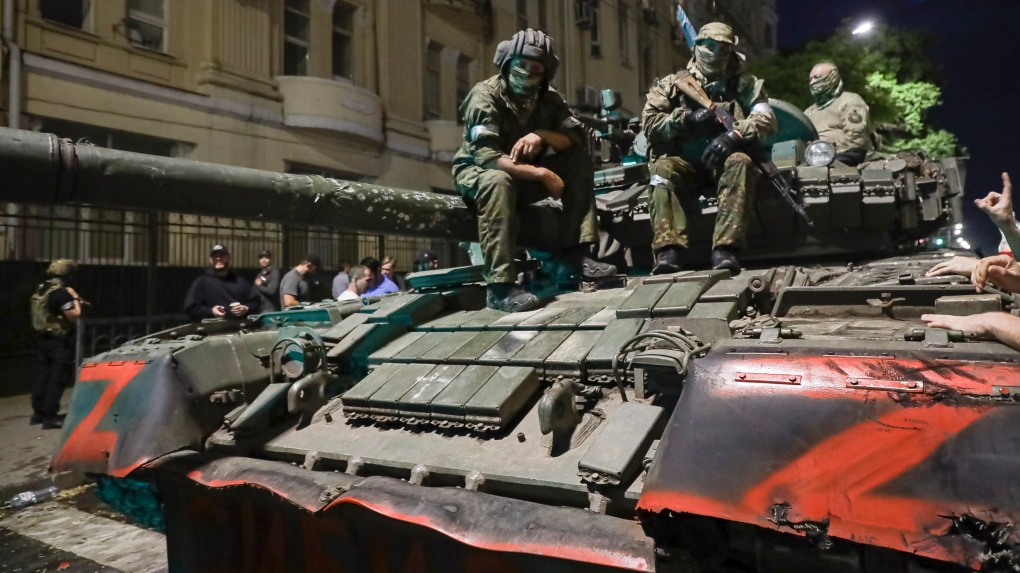
Russian troops withdraw from Moscow after mercenary revolt ends but trouble remains for Putin
CTV
Russian troops deployed to protect the capital withdrew Sunday after mercenary forces beat a retreat. But the short-lived revolt could have long-term consequences for President Vladimir Putin's two-decade hold on power and his war in Ukraine.
A short-lived revolt by a rebellious Russian mercenary commander ended with his troops beating a retreat, but the extraordinary challenge to President Vladimir Putin's two-decade hold on power could have long-term consequences for his rule and his war in Ukraine.
Putin's image as a tough leader had already been badly bruised by the Ukraine war, which has dragged on for 16 months and claimed huge numbers of Russian troops. Saturday's march toward Moscow by forces under the command of his onetime protege, Yevgeny Prigozhin, exposed further weaknesses, analysts said.
It also meant some of the best forces fighting for Russia in Ukraine were pulled from that battlefield: Prigozhin's own Wagner troops and Chechen ones sent to stop them.
After calling for an armed rebellion aimed at ousting Russia's defence minister, Prigozhin and his fighters appeared to seize control of the Russian military headquarters in Rostov-on-Don that oversee fighting in Ukraine.
They then advanced towards Moscow largely unhindered. Russian media reported that they downed several helicopters and a military communications plane. The Defence Ministry has not commented.
They were halted only by a deal to send Prigozhin to neighbouring Belarus, which has supported Russia's invasion of Ukraine. Charges against him of mounting an armed rebellion will be dropped, according to Kremlin spokesman Dmitry Peskov, and Prigozhin ordered his troops back to their field camps.
The government also said it would not prosecute Wagner fighters who took part, while those who did not join in would offered contracts by the Defence Ministry.

 Run 3 Space | Play Space Running Game
Run 3 Space | Play Space Running Game Traffic Jam 3D | Online Racing Game
Traffic Jam 3D | Online Racing Game Duck Hunt | Play Old Classic Game
Duck Hunt | Play Old Classic Game